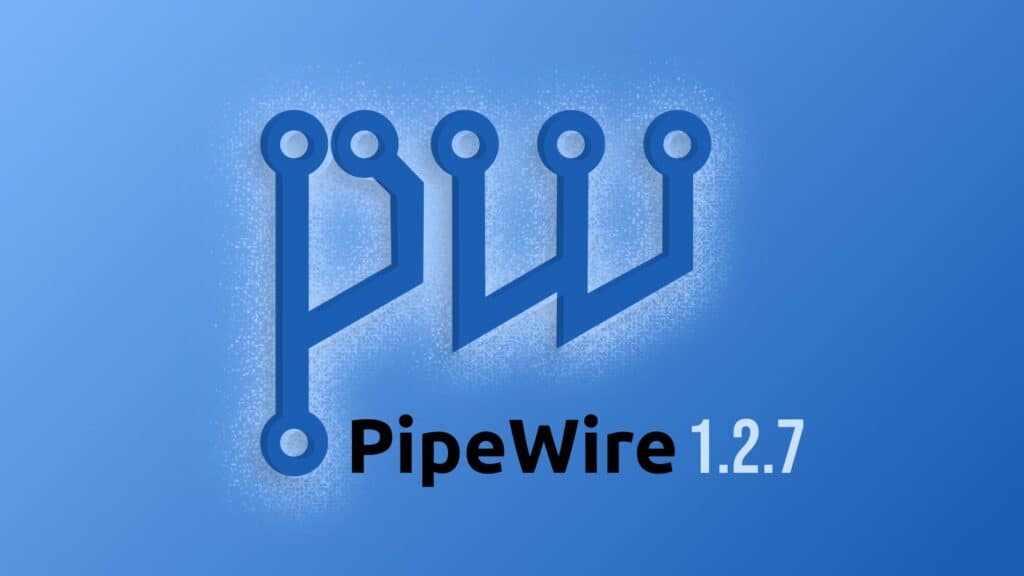The PipeWire team has announced the release of PipeWire 1.2.7, a bugfix update for this Linux multimedia server that manages audio and video streams. This new version maintains API and ABI compatibility with all previous 1.2.x and 1.0.x releases.
While no groundbreaking new features exist, it’s packed with numerous improvements designed to enhance reliability, performance, and compatibility across various modules.
PipeWire 1.2.7: What’s New and Improved?
One of the key highlights of this release is the backport support for lazy scheduling, which helps optimize processing resources, allowing PipeWire to perform more efficiently under various workloads.
Additionally, the new release addresses a specific case where processing would halt when an ALSA driver was destroyed. This fix means users should see more stable behavior with ALSA devices, ensuring smoother transitions when audio devices are removed or changed.
PipeWire 1.2.7 also brings added support for v4l2loopback in the v4l2 plugin, making it more versatile for developers and users working with virtual video devices. Moreover, several small bug fixes and quality improvements have been made throughout.
Beyond general improvements, the PipeWire core has also seen essential bug fixes. Notably, the update addresses profiler statistics for asynchronous nodes and revisits the EARLY_PROCESS behavior in the pw-stream module, which should provide more reliable media streaming for those relying on early processing triggers.
Modules received several critical bug fixes and optimizations. A significant crasher issue was fixed in module-filter-chain, specifically where nodes were created in an incorrect order, which would previously lead to instability.
The team has also removed a hardcoded limit in the filter-chain sofa plugin and added rate-limiting for JACK tunnel xruns, making these modules more robust and adaptive to different usage scenarios.
Further, improvements were made to handle larger MTU sizes in module-rtp, which should benefit users dealing with RTP streaming, particularly when high packet throughput is necessary. There’s also a fix for JSON float parsing errors in the equalizer module, ensuring smoother handling of equalization settings.
The SPA, a core part of the PipeWire ecosystem, also saw crucial updates. There’s now a fix for crashes in audiotestsrc when using spa-inspect, improving the resilience of test environments.
Other SPA improvements include performance tweaks in the resampler, better infinity checks in JSON float parsing, and a regression fix in v4l2 port flags that re-enables support for EXPBUF, enhancing device handling for video applications.
PipeWire’s Pulse-server, which helps provide compatibility with PulseAudio clients, now delivers clearer error messages when running out of file descriptors and ensures positive latency reporting—a small but welcome tweak for those managing complex audio routing setups.
The GStreamer-related components of PipeWire have also been updated to address a memory leak in deviceprovider and to improve error handling through better locking mechanisms when emitting errors, making multimedia streaming more reliable overall.
Finally, PipeWire’s tooling saw a minor fix with pw-dot link labels, which should improve the output of graph visualization tools, helpful for developers needing to troubleshoot or analyze media graphs.
Refer to the changelog for more information about all changes in the new version.
